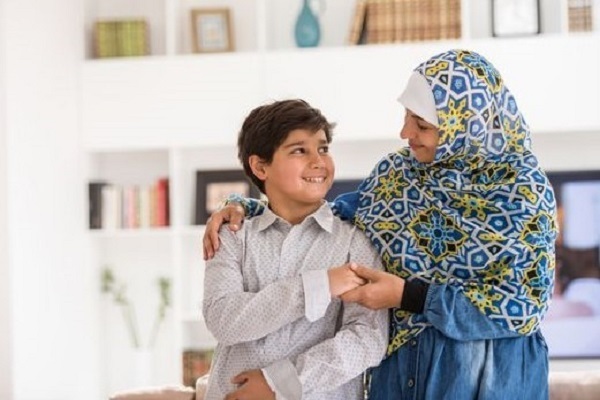What Islam Says about Treating Children

In an interview with IQNA, Mohsen Imani, a professor of psychology at Tehran’s Tarbiat Modares University, talked about types of violence against children and Islam's point of view in this regard. What follows is a summary of his remarks:
Violence against children can be divided into three levels: anger, aggression, and violence.
To put it in simple words, anger is when a child does something wrong and parents react to that with a frown for example. The second level is aggression, in which the parents yell at the child and perform relatively harsh behaviors. Violence in the third level where acts such as beating occur and that can be considered child abuse. This type of treatment can cause serious emotional and physical harm to the child.
Different countries have adopted laws to prevent violence against children but they sometimes fail to act as a strong deterrence.
Islamic teachings on treating children
Islamic teachings oppose anger, aggression and violence against children. Furthermore, Islam has defined a set of rights for children and adults should respect these rights, including the child's right of receiving love.
Prophet Muhammad (PBUH) says "Love the children and be kind to them, and fulfill your promises to them because they see you as their provider of sustenance.” So, the first step is to love children and be kind to them, then if we make a promise, we should honor that.
The second point is that children should not be given tasks beyond their capability because such actions can force them to lie or disrespect their parents.
Islam not only considers love for all children as a duty, but it also gives special instructions whenever the emotional needs of children are undermined such as in the case of orphans. “Do not oppress the orphan.” (Surah Ad-Dhuha, verse 9) Also, there are various hadiths that describe the good treatment of orphans as a great virtue.
Another point that is recommended by Islam is the issue of playing with children. According to narrations, Prophet Muhammad (PBUH) used to carry his grandchildren on his back. Even sometimes, when the prophet (PBUH) was walking in the street, little children would ask him for a ride because they knew that he loved to play with them. Prophet Muhammad (PBUH) promoted the act of playing with children as a positive virtue.
The fourth point relates to respecting children and giving them a place in ceremonies. While attending a ceremony, the elders usually sit around the room and if a child seeks to enter the room and sit, he/she may be faced with a frown. However, Prophet Muhammad (PBUH) asked believers to respect their children, give them a place to sit, and not be angry with them in ceremonies.
The issue of talking to children is the next point and Islam has offered its special practice. The Prophet (PBUH) asks people to talk with their children in a manner that children do. The language of children is not the language of violence and we never have the right to beat children.
Another point is to caress and kiss the child, which is also mentioned in Islamic teachings with great virtue. And this should be observed for all children without any discrimination as the Prophet (PBUH) once said whoever wants God to treat him justly, then he should not discriminate between his children.
Reporting by Mohammad Ali Haqshenas



